Granite Shore - Interview
by Malcolm Carter
published: 23 / 12 / 2017
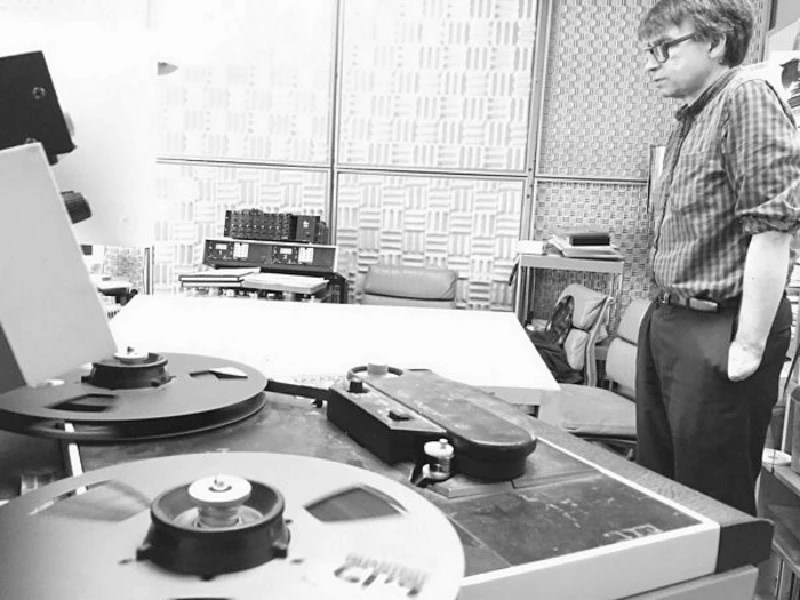
intro
Nick Halliwell found that there was only one way he could vent his anger over the European referendum result - make a new album with his group, The Granite Shore. He tells Malcolm Carter about the influences behind this album, in particular his love of that most European of pop bands, Abba.
Nick Halliwell is angry. Although he has plenty of outlets - he runs his own independent record label (Occultation Records), is a talented record producer and is a members of The Distractions - there was really only one way for Halliwell to vent his anger and that was by making his own record with The Granite Shore, setting his thoughts and anxieties to music. Halliwell had already started work on the songs for the follow-up to The Granite Shore’s 2015 debut, ‘Once More From The Top’ (the best ‘diary of a fictional band’ ever released). The events of the night of 23rd June 2016 changed the direction of Halliwell’s new songs, however. Shocked by the outcome of the United Kingdom European Union membership referendum and, it would seem, understanding the implications considerably earlier than most, Halliwell used his planned new album as an outlet for his feelings before the deluge began. Strangely, the expected outpouring of new songs from our favourite bands or artists didn’t materialise as heavily as most anticipated - making Halliwell one of the few songwriters to get ro grips with the this topic. But, even more surprisingly, Halliwell's anger and frustration wasn't accompanied by the type of music we would usually expect from a politically-themed set of songs . It wasn’t a mainly acoustic set of singer/songwriter fare; nor was it an angry-sounding bunch of songs where the singer spat out his words in frustration. Halliwell’s baritone has always had a calming effect and, when coupled with his knack for writing memorable melodies, the results have always been magical. On ‘Suspended Second’ the anger and betrayal Halliwell so obviously feels is even more effective, simply because he has dressed his anxieties in such rich, flowing melodies that, along with his distinctive, warm vocals, make ‘Suspended Second’ irresistible. It’s a pop record. ‘Suspended Second’ contains, over nine songs, some of the most beautiful pop music you’ll ever hear. It’s also one of the most important records of recent times. We are all guilty of trying to pigeonhole music simply because it’s the easiest and quickest way to get across how a certain record sounds. But how can one describe the work that Halliwell creates, especially this latest album? It’s a well-worn thing now but there are touches of Abba’s genius in his work albeit with Halliwell going places lyrically that our favourite Swedes, or any other artist for that matter, would never visit. ‘Suspended Second’ is an essential purchase; it’s an addictive, beautiful musical journey, played to perfection with Halliwell proving once more that he is one of our most articulate lyricists. There really is nothing else out there like it. We all need ‘Suspended Second’ in our lives, in any of the formats it is available in. But if you still have an old Dansette, or preferably a newer version of such a thing, then please, be good to yourself and purchase the vinyl version of the album. As usual with releases on the Occultation label Halliwell has really pushed the boat out, the sleeve alone is almost worth the price of the package. If you’re quick, then you might even pick up the Deluxe vinyl, which includes a glorious mono mix of the album too. It’s always a pleasure to put a few questions to Nick Halliwell and the release of ‘Suspended Second’ gave us another opportunity. More information on the label and Nick Halliwell can be found here www.occultation.co.uk Pennyblackmusic: Hi Nick, It’s good to have the opportunity to put a few questions to you again. Firstly, why title the album ‘Suspended Second’? Nick Halliwell: I was writing out chord charts for the other musicians and I use a lot of suspended second chords - as do Prince, Joni Mitchell and Bryan Maclean of Love, amongst others - and I realised that was the title. There are loads of connotations: it’s the second Granite Shore LP (the first had “Once” in its title; this may wear thin if we reach album no. 11…) but it also seemed to capture something about where we are. We’ve no idea what’s going to happen to us, it’s impossible to plan for the future and the whole country’s left hanging. PB: There were expectations, hopes even, that the follow-up to ‘Once More From The Top’ would be a sequel of some kind; was that ever your plan? NH: I had some ideas along those lines and there are one or two songs - most obviously 'Buyer Beware' - where elements subsist, but I was overtaken by events. Studio time had already been booked as Ian (Henderson, drums) was coming from New Zealand. With 'OMFTT' I only booked studio time once I had most of it written but this time I was writing off-the-cuff, responding to the unfolding disaster. PB: Were all the songs for ‘Suspended Second’ written after 23rd June 2016? NH: No, I started around March or April and, although around half of the songs were underway by late June, the only one near completion was 'So It Begins'. After the calamity, I rewrote most of what I had and came up with more from scratch. I decided to leave 'So It Begins' to set the rest of it up. I’d planned an album broadly on the subject of anxiety but then the referendum felt like a colossal national anxiety episode, so it didn’t need much rewriting. PB: How long did the writing process take? NH: It’s always impossible to say exactly, as it depends how you define “the writing process”. However, the bulk of what ended up on the record was knocked into shape over a few weeks in late July and early August 2016. The one exception is 'Commodities'; that was written in early 2017, as I felt side two needed something to mirror 'Someone Else' at the end of side one and I wanted at least a hint of hindsight. PB: The outcome of that night shocked so many of us, but the expected outpouring of songs and albums never really materialised. Why is this, do you think? NH: I’m as baffled as you. When I was writing 'Sus2', I kept thinking that by the time it came out there’d be dozens, if not hundreds, of them. Perhaps there’s been a loss of faith in the importance of music, or rather - and I use the word very advisedly - in its currency. Yet this is a disaster for musicians: will bands now need work permits and carnets for their equipment to go and play across the Channel? Export tariffs on records? The impact on Occultation has been absolutely colossal and disastrous already, and the worst hasn’t even happened yet. Where are the spokespeople for the various generations when we need them? PB: Although the lyrics convey your concerns, anger and dismay at the choice some of our fellow countrymen made, the music and arrangements are, for the main part, lush pop music. Was it your intention to make such strong feelings more accessible by dressing the lyrics in such irresistible melodies? NH: That’s it in a nutshell. As I say, I thought we’d be knee-deep in protest art and other people would rage to far greater effect than I could. Having said that, I’m not convinced power chords and screaming are the only, or even the most effective, way of making a point. I wanted to make the record as accessible as I could. A German reviewer said it’s “mehr Abba als Albion” - “more Abba than Albion” - a wonderfully succinct summary of what I was trying to do. Firstly there’s the obvious fact that Abba, like many important parts of our culture, are emphatically European; there are a couple of Dante quotations on the sleeve, as well as The Venerable Bede in Latin, Europe’s founding language. Then Shakespeare, of course. Abba and Shakespeare are cornerstones, beacons in my cultural clutter. Shakespeare took most of his plots from Continental Europe and most of the plays are set in Italy, France, etc. I’ve always been hugely influenced by European culture and the same is true of everyone else on Occultation. PB: I hate to keep bringing it up, but the more I listen to ‘Suspended Second’ the more I hear Abba in the songs, especially the background vocals when listening on headphones, I know that you’re a major fan but were you aiming for that type of sound? NH: Don’t be shy, I’m always happy to talk about Abba. The story of every record I’ve ever made has been about the particular way in which I’ve tried and failed to sound like them. Once More From The Top borrowed plenty, but less obviously. I’ve always felt that if you’re trying to get a message across and not merely preach to the converted, you need to frame it as appealingly as you can, so I made a real effort to write strong melodies and hooks. When I went to master the album, I was reading the new edition of Carl Magnus Palm’s utterly astounding book 'Abba - The Complete Recording Sessions' on the train, and in the studio when Jas (Mitchell, engineer) asked me what I was after for the overall sound I just pointed at it and said “this!” I’m sure I’ve failed yet again, but maybe I got a tiny bit closer… PB: Despite the anger and subject matter, the songs on the album can take on a different meaning than you initially intended. I noticed that some listeners are singing along and enjoying the songs without really having a clue as to the point you are making simply due to the songs being so catchy (I’m thinking ‘There’s Always One’ here). Does it bother you that some people are missing your message? NH: Nobody can control how their work will be interpreted, nor should they try. I imagine Bruce Springsteen still shakes his head when people interpret Born in the USA as an aspirational “American Dream” thing. Then again, I think nowadays people spend far less time with individual records so I think it’s important to try to offer a few pointers. Brad Yarhouse’s animatic videos are fairly explicit - they were entirely his work but we discussed things beforehand and I encouraged him to be direct. He did a wonderful job. PB: I have to bring up those backing vocals again; were the songs fully formed before you went into the studio or were those vocals developed as the songs took shape? They really are amazing and play a major part of the sound. NH: The way we recorded it was that I put down basic frameworks on my own, then the band spent two and a half days in a commercial studio playing along live. Some BVs were in place from the start, but developed once Steve (Perrin) and John (Howard) began sending in their contributions. The most striking example is 'Someone Else'. I asked John to have a go at the chorus, as it needed another voice singing back to the protagonist of the verses, and he sent back this enormous and quite wondrous choral arrangement. Once I’d stopped laughing and crying, simultaneously, I knew how to sing my own parts. John and Steve must share any credit for the vocal arrangements on this record, as must Phil, Arash and Ian for the instrumentation. I’m in charge, but The Granite Shore is very much a collective undertaking. PB: John Howard is featured playing piano and also provides vocals, how did that materialise? NH: When 'OMFTT' came out, my friend Paul Simpson (Wild Swans) said it reminded him in some way of 'Kid in a Big World'. I was vaguely aware of that record but didn’t know it well but I bought a copy and then came across John online. We hit it off instantly so I offered to put out his'Across the Door Sill' LP and he agreed to contribute to 'Sus2'. We’re now starting work on a new John Howard LP, which should be out next year sometime. I’m looking forward to that. PB: How long did it take you to write ‘Someone Else’ and whose wordless vocals open that song? It’s one of the most emotional beginnings on a song I’ve heard and your opening line of “ we don’t know who we are, I thought we did, but I was so very wrong” has to be one of the most affecting lines on the whole album. NH: That’s John’s gorgeous falsetto at the beginning. It wasn’t difficult to write; originally it was based around a revolving picked acoustic guitar pattern in 7/8 but that felt too lugubrious so I asked John to try something on piano. It started out as an anxiety song - if you suffer from any kind of mental affliction, you get a lot of well-meaning advice but it can feel as though people are saying two things, the first of which is “it’s all in your head”. Now, whilst undoubtedly true, this is about as helpful as telling an injured footballer that a broken metatarsal is all in his foot. Secondly, you can feel as though you’re being told “look, all you need to do is become a totally different person and you’ll be fine”. However, like much of the material, it was developed post-23/6. Part of the problem seems to me to be that we English haven’t the faintest idea who we are, we just have a vague idea we’re not very happy with it, whatever it may be. PB: Our future is more uncertain now than ever and, personally, I think there are so many people who haven’t grasped the enormity of what has happened so far and is far from over. Is this album likely to be your last public statement on the referendum? NH: If our glorious leaders will scrap the whole imbecilic thing, I’ll gladly shut up about it. PB: What are your feelings now, over one year on from the referendum? Has it already affected your personal and professional lives in any way yet? I’ve personally been affected already and I’m living abroad at the moment. NH: I’m very wary of making this about myself but the simple answer is a resounding “yes”. The label, Occultation Recordings, was doing incredibly well in 2015, 'OMFTT' did nicely, the Revolutionary Army of the Infant Jesus’s 'Beauty Will Save the World' was hugely successful… Coming into early 2016 we were very optimistic. That all changed almost overnight. The weak pound means the cost of making records has rocketed - although we press vinyl in the UK most raw materials are imported. We’ve also seen a huge drop in UK sales. The majors are profiteering, as the prices of sure-fire bestseller reissues (Beatles, Bowie, Floyd, etc.) have gone up to the point where people no longer have the cash left over to try something new. It’ll be one hell of a battle just to try and keep the label going. It’s also been devastating on a personal level, but that involves other people and it wouldn’t be fair to bring them in. The last 18 months have been the worst of my life. PB: For this listener ‘The Performance of a Lifetime’ is the centrepiece of the album in some ways, it’s such an emotional song and, although your chosen musicians excel throughout the album, on this particular track they shine brighter than ever. Surely this song and this performance must have a special place in your heart? NH: Well… Yes, I’m proud of that song. It was one of the easiest to write and arrange, it all fell into place beautifully. It was also the one I most enjoyed playing in the studio. I think we did about four takes (9 and a half minutes each, of course…) but I could happily have kept going. The other day I saw a couple of academics discussing it on social media; you can have no idea how much I enjoyed that. PB: It’s unusual to release a separate mono mix of an album. Were your reasons for doing this solely because so many people are listening to albums now through a device with just one speaker? NH: Yes, a lot of people are now listening either on one speaker or two so close together you don’t get a proper stereo field. It’s not 60s revivalism - it’s not a very 60s-influenced record - nor is it a “remix” or a straight fold-down of the stereo. I did the two mixes simultaneously, rather than completing the stereo first then simply collapsing it into mono. I also tried a few different things from one version to the other. If I’d had more time I’d probably have gone further but I was up against the clock. PB: Occultation has a reputation for issuing their records in a variety of formats and usually in limited edition sets with other goodies. Which formats is ‘Suspended Second’ being issued in? NH: There’s the standard retail LP, which is a 180g record in a vertical gatefold sleeve, laminated inside and out, plus an inner with the lyrics. Then there’s the standard retail CD, in our usual inner sleeve and outer wallet format. Best of all, there’s the Deluxe edition, only available from us and Fishrider: that’s a double LP with stereo and mono mixes, a CD (in proper sleeve), an insert with an essay, a poster and two fully-laminated Tarot cards. PB: What future plans do you have for recording and are there any releases planned for the foreseeable future on Occultation Records by any other artists? NH: We’re about to embark on a new John Howard LP, with a similar line-up to 'Sus2'. There’s a new Death and the Maiden album recorded, that’ll be another joint Fishrider/Occultation release. Before that we’re co-releasing a new 7” single by The Shifting Sands, whose last LP, 'Cosmic Radio Station', sold very well indeed. That’s at the pressing plant right now, should be out in the New Year. The Rev Army are also working on new material, so I hope we’ll have their fourth LP sometime in 2018 and I’d like to do a third Granite Shore record - however, a lot depends on how 'Sus2' does; packaging like this was always expensive but it’s gone up enormously over the last 18 months and, quite frankly, I’m not sure how much longer we can continue the way things are. Upon which cheery note I’ll leave you… PB: Thank you.
Band Links:-
http://www.occultation.co.uk/https://www.facebook.com/TheGraniteShore
Picture Gallery:-
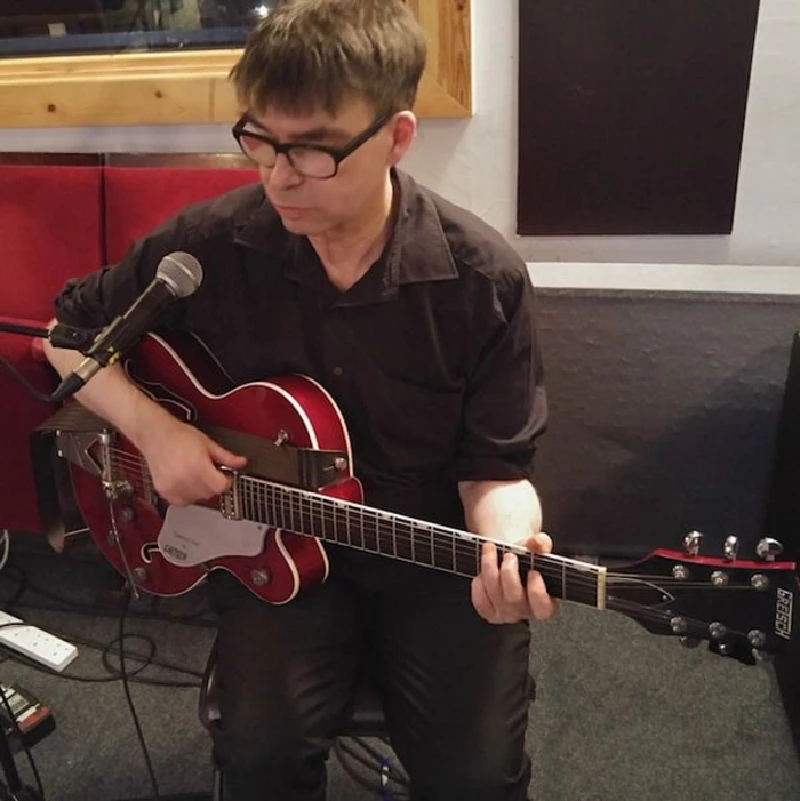
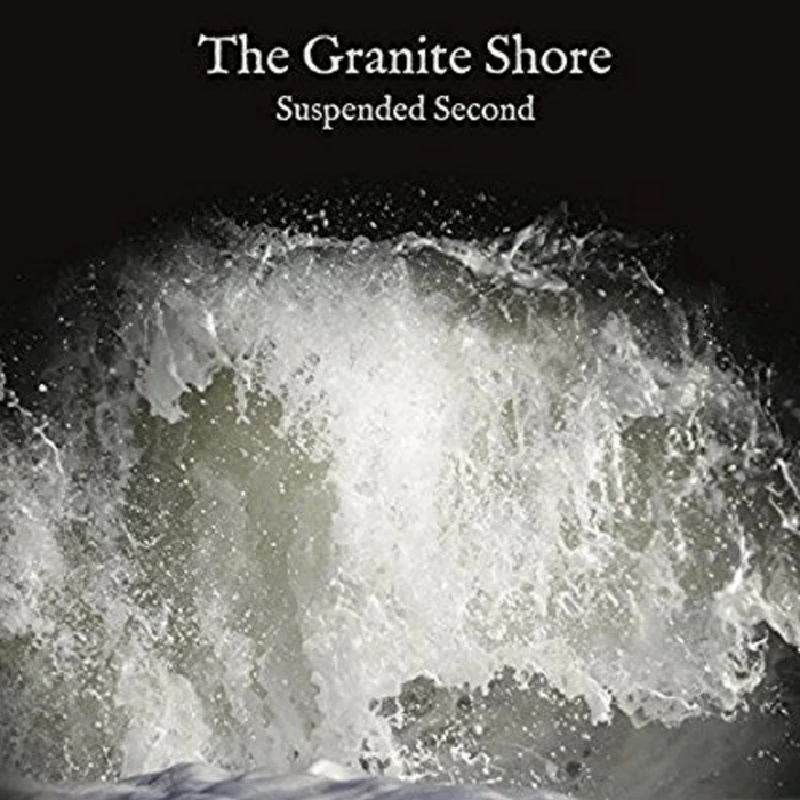
interviews |
|
Interview (2015) |
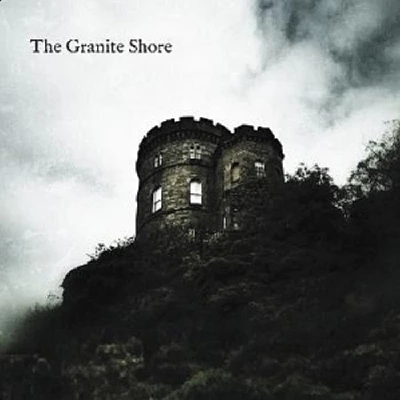
|
| Occultation Recordings owner Nick Halliwell talks about his band The Granite Shore's long-awaited debut album, 'Once More From The Top’, which is a concept album about a group, and his difficulty in getting it released |
profiles |
|
Profile (2015) |

|
| Malcolm Carter reflects on Distractions' guitarist and Occultation Recordings' boss Nick Halliwell's band the Granite Shore's debut album ‘Once More From The Top’ which, out in May, he believes to be 'one of the most impressive and important albums not just of this year but the whole decade' |
reviews |
|
Suspended Second (2017) |
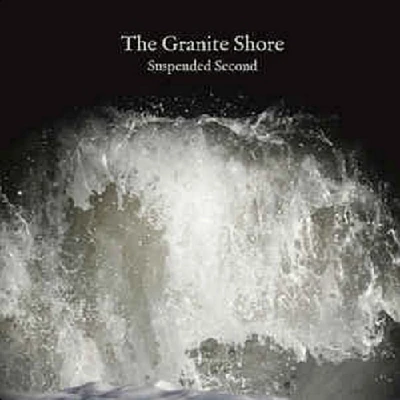
|
| Second album from the Granite Shore which is mainman Nick Halliwell’s angry response to Brexit and, wrapped in Abba-like melodies, one of the albums of the year |
most viewed articles
current edition
Carl Ewens - David Bowie 1964 to 1982 On Track: Every Album, Every SongArmory Show - Interview with Richard Jobson
Colin Blunstone - Thalia Hall, Chicago, 16/7/2025
Visor Fest - Valencia, Spain, 26/9/2025...27/9/2025
Bathers - Photoscapes 1
John McKay - Interview
Robert Forster - Interview
Billie Eilish - O2 Arena, London, 10/7/2025
Sir Tim Rice - Interview
Loft - Interview
previous editions
Heavenly - P.U.N.K. Girl EPManic Street Preachers - (Gig of a Lifetime) Millennium Stadium, Cardiff, December 1999
Beautiful South - Ten Songs That Made Me Love...
Oasis - Oasis, Earl's Court, London, 1995
Pixies - Ten Songs That Made Me Love...
Trudie Myerscough-Harris - Interview
Prolapse - Interview
Doris Brendel - Interview
Simon Heavisides - Destiny Stopped Screaming: The Life and Times of Adrian Borland
Paul Clerehugh - Interview
most viewed reviews
current edition
Sick Man of Europe - The Sick Man of EuropeLucy Spraggan - Other Sides of the Moon
Amy Macdonald - Is This What You've Been Waiting For?
Phew, Erika Kobayashi,, Dieter Moebius - Radium Girls
Davey Woodward - Mumbo in the Jumbo
Bush - I Beat Loneliness
Blueboy - 2
Alice Cooper - The Revenge of Alice Cooper
Cynthia Erivo - I Forgive You
Suzanne Vega - Flying With Angels
Pennyblackmusic Regular Contributors
Adrian Janes
Amanda J. Window
Andrew Twambley
Anthony Dhanendran
Benjamin Howarth
Cila Warncke
Daniel Cressey
Darren Aston
Dastardly
Dave Goodwin
Denzil Watson
Dominic B. Simpson
Eoghan Lyng
Fiona Hutchings
Harry Sherriff
Helen Tipping
Jamie Rowland
John Clarkson
Julie Cruickshank
Kimberly Bright
Lisa Torem
Maarten Schiethart